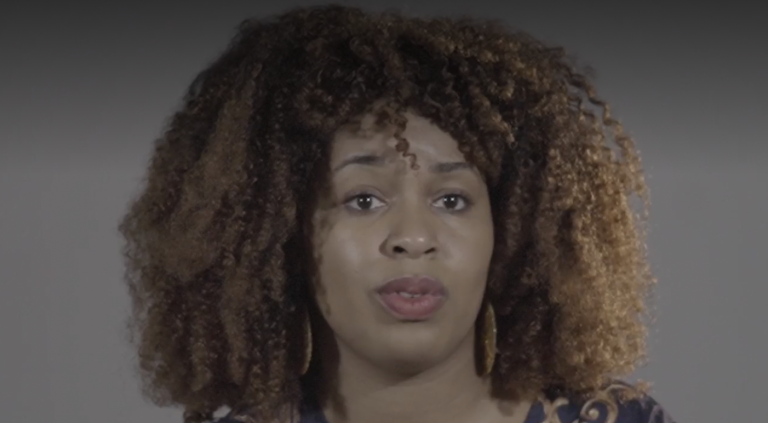The Prompt
Table of Contents:
“Small Illuminations” by Tara Betts
Read “Small Illuminations” here.
The monitoring that occurs between people who are not incarcerated with other people who are incarcerated always limits personal interaction. So, it brings up questions of how to be friendly and human without being deemed inappropriate, especially when those interactions occur between people who are typically perceived as men and women. In Betts’s poem, the speaker is an educator documenting the scenes that she sees in visits at Stateville prison, where Margaret Burroughs taught creative writing and visual art for years. One of the students worked with Burroughs and passes along a chapbook to the poet through another inmate. The first section describes the student, the second section describes how the students dress. Section three describes the supplies that the educator hands to the students. The final section describes the chapbook that Albert passes along to his teacher before he’s transferred.
STEP 1:
Take out a piece of unlined paper and draw a line through the middle of the page (top to bottom) and a second line (left to right through the middle) so the page is broken into four squares.
STEP 2:
Think of a place that you encounter often.
STEP 3:
In the first three squares, focus on details from three different aspects of the place you’ve encountered and write them down. In the fourth square, write about how all those details are part of one story.
STEP 4:
Pull words and lines from each square. Combine them in a way that suits you. If it sounds like a poem, call it a poem. If it comes out as something else, that is wonderful as well.
STEP 5:
Submit the resulting piece using the online submission form below.
Suggested Reading
- Burroughs, Margaret T.G. Life with Margaret: The Autobiography of Dr. Margaret Burroughs (In Time Publishing, 2003).
- Cain, Mary Ann. Southside Venus: The Legacy of Margaret Burroughs. (Northwestern UP, 2018).
- Our Girl Tuesday: An Unfurling for Dr. Margaret T.G. Burroughs (Project NIA, 2021).
“Cost-Benefit Analysis” by Khari Bowden
Read “Cost-Benefit Analysis” here.
In Bowden’s poem “Cost-Benefit Analysis,” he critiques prisons with the economic term that calculates the costs (expenses) and benefits (profits) of a given project, then basing the decision of undertaking and passing on a specific project. This poem uses elements of anaphora (a repeating phrase at the beginning of a line or stanza) and alliteration (words with a repeating consonant in quick succession). “Can it B any wonder…” is the anaphora that makes the poem conversational and rhythmic, but it also anticipates the question How does this system work?, or Is it working the way that it was designed to work?
STEP 1:
Write a short list of experiences or systems that do not work in our daily lives.
STEP 2:
Why don’t these experiences or systems work? What details reveal the inefficacies? Write down those events, sensory details (sight, smell, taste, touch, sound), actions, interactions, and observed body language you see in those moments where it’s clear your chosen experience does not work.
STEP 3:
Write a poem or a short story about an element of your experience that becomes an obstacle or “isn’t working,” using the question “Is it working?” or the phrase “Can it be any wonder…” to start your piece.
STEP 4:
Once you have finished, submit your piece using the online submission form below.
Suggested Reading
- Alexander, Michelle. The New Jim Crow: Mass Incarceration in the Age of Colorblindness (New Press, 2010).
- Barkow, Rachel Elise. Prisoners of Politics: Breaking the Cycle of Mass Incarceration (Belknap Press/Harvard UP, 2019).
- Hoch, Danny. Jails, Hospitals, and Hip Hop. Andy’s monologue about the kid writing letters and “calculated loss.”
“Welcome to Sunnyside” by Ciara Miller
Read “Welcome to Sunnyside” here.
Miller’s poem offers a moment where the speaker visits a cannabis dispensary in Chicago, where marijuana was legalized for adult use in 2019. The poem documents the visit, but it also offers the backstory of a family (and a people) criminalized for marijuana and other substances. The poem illustrates an important question: Who is allowed to benefit from a drug and who is considered a criminal in relation to a drug? This disparity is particularly revealing since there are not any Black-owned dispensaries at this point, and Evanston, Illinois is planning to offer reparations to African Americans from dispensary revenues.
STEP 1:
Think of a place from your past that has dramatically changed. Write a description of what the place used to be like and how it has changed.
STEP 2:
In your writing, whether it is a poem or a story, consider who is oblivious to the new version of this place. Who enjoys the “new” place and why? By the time you arrive at the end of your piece, think about who gets to enjoy a place.
STEP 3:
Submit your piece using the online submission form below.
Suggested Reading
- Brown, Brian “Box.” Cannabis: The Illegalization of Weed in America (First Second, 2019).
“Bandele: Beautiful Chain” by Devon Terrell
Read “Bandele: Beautiful Chain” here.
The name “Bandele” is a Yoruba/Nigerian name that means “follow me home” or “child born away from home.” By giving the poem this title, Terrell hints at the separation of not being at home, but still having a piece of himself beyond his confinement that resides within his loved ones.
STEP 1:
Write a list of images and actions that illustrate togetherness.
STEP 2:
Write a short second list of images and actions that illustrate separation.
STEP 3:
Use those lists to create a poem with short lines that create a portrait of resilience or another feeling that survives.
STEP 4:
Submit your poem using the online submission form.
Suggested Reading
- bandele, asha. The Prisoner’s Wife (Simon & Schuster, 1999).
- Comfort, Megan. Doing Time Together: Love and Family in the Shadow of Prison (University of Chicago Press, 2007).
- Roberts, Ebony. The Love Prison Made and Unmade: My Story (HarperCollins, 2019).
For Younger Readers
- Kaba, Mariame. Missing Daddy (Haymarket Books, 2019). Illiustrated by bria royal.
- Thornhill, Samantha. A Card for My Father (Penny Candy Books, 2018). Illustrated by Morgan Clement.
Respond to David and Tara's Prompts
Questions? Visit our FAQ page. By submitting your response to this prompt you agree to the Terms & Conditions.
"*" indicates required fields
Unbarred Poetics
Michael H. Brownstein
Antwoinette Ayers
Leona Woodland
Envisioning Justice


 326
326